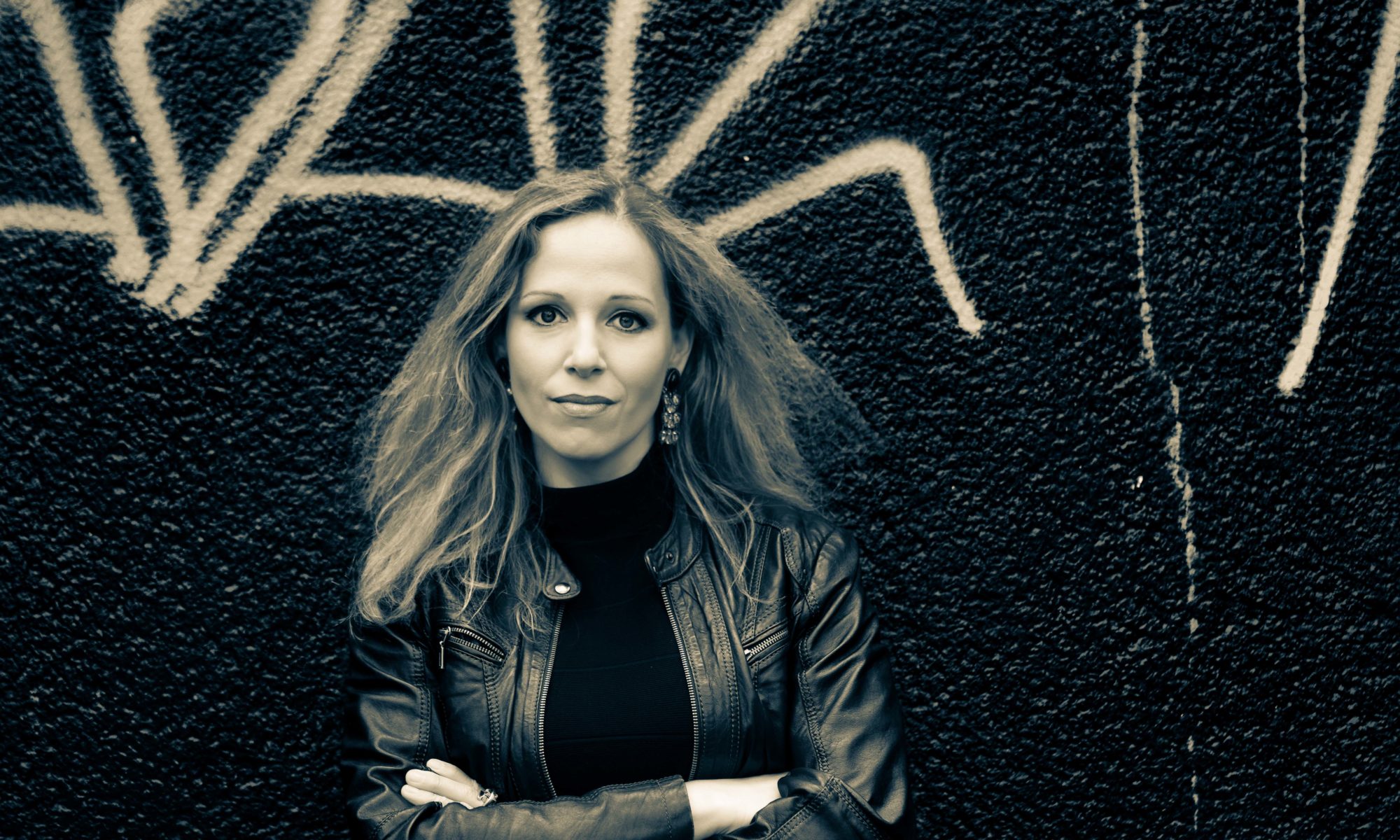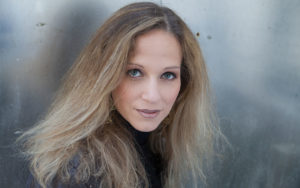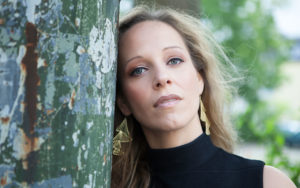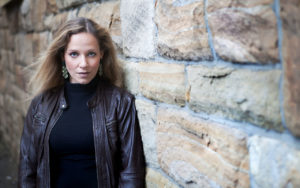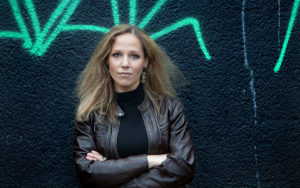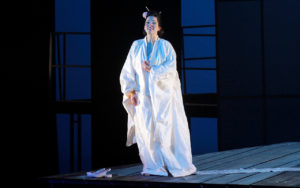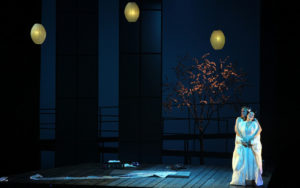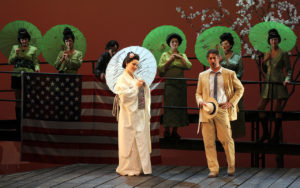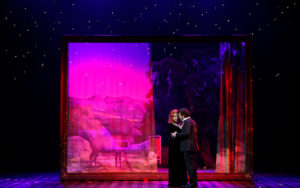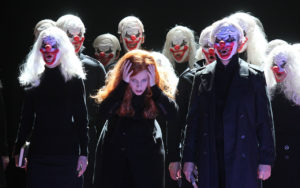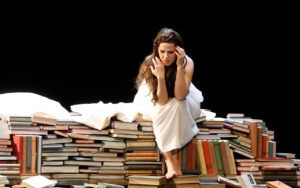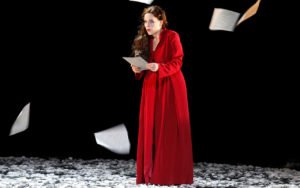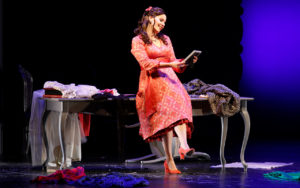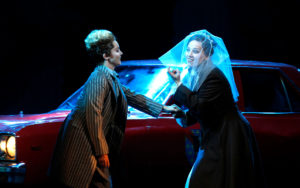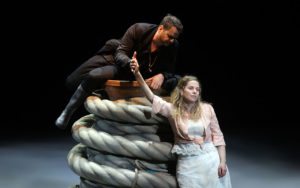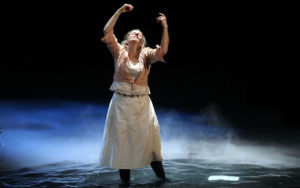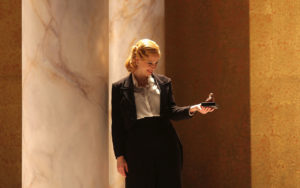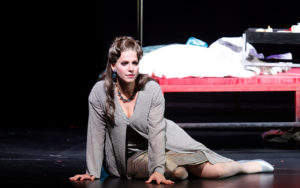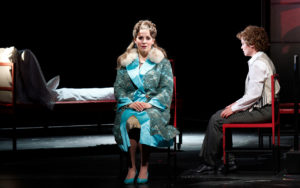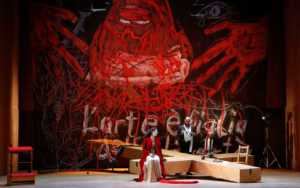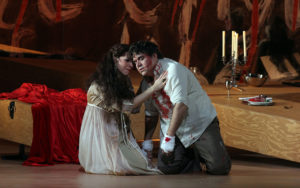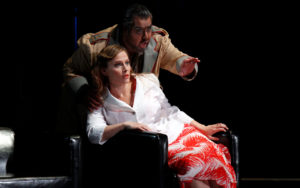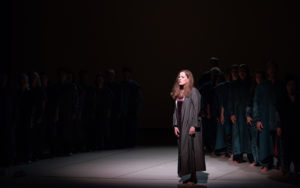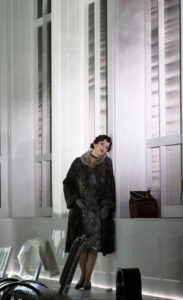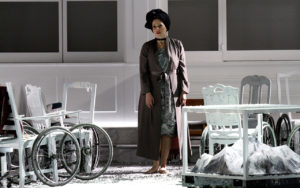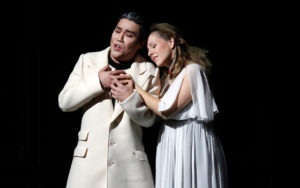A member of the soloist ensemble at Theater Hagen for six seasons, from 2013 until 2019.
Role debuts at Theater Hagen (a selection):
Dido in Dido and Aeneas, Micaela in Carmen, First Lady in Die Zauberflöte, Contessa in Le Nozze di Figaro, Desdemona in Otello, Sylva Varescu in Die Csárdásfürstin, Lisa in Land des Lächelns, Marguerite in Faust, Tatjana in Eugen Onegin, Cio-Cio-San in Madama Butterfly, Senta in Der fliegende Holländer, Feldmarschallin in Der Rosenkavalier, Floria Tosca in Tosca, Foreign Princess in Rusalka, Die Dame in Cardillac
Engagements at other theaters:
Staatstheater Mainz – Amelia in Simon Boccanegra by Giuseppe Verdi
Theater Chemnitz – Feldmarschallin in Der Rosenkavalier by Richard Strauss
Theater Koblenz – Feldmarschallin in Der Rosenkavalier by Richard Strauss
Stadttheater Klagenfurt – Rosaura in Casanova by Albert Lortzing
Südtiroler Operettenspiele – Sylva Varescu in Die Csárdásfürstin by Emmerich Kálmán
Györ Philharmonic Orchestra (Hungary) – Soprano soloist in the World Premiere of Szent László Himnusz by Theodor Burkali
Recitals and Concerts – Various in Germany, Austria, Italy, Argentina (Buenos Aires and Ushuaia „Festival de Ushuaia“)
Conductors:
Guillermo Garcia Calvo, Christoph König, Daniel Montané, Enrico Delamboye, Rodrigo Tomillo, Mihhail Gerts, David Marlow, Joseph Trafton, Florian Ludwig, Ádám Medveczky
Directors:
Magdalena Fuchsberger, Beverly und Rebecca Blankenship, Annette Wolf, Johannes Erath, Jochen Biganzoli, Roman Hovenbitzer, Markus Dietze, Roland Hüve, Holger Potocki, Gregor Horres, Norbert Hilchenbach
Languages: German, Italian, English, French
Education: Master’s degree with honors in Song Literature/Opera and Opera Performance at the Salzburger Mozarteum. Bachelor’s Degree in piano performance at the Salzburger Mozarteum.
Masterclasses: Kurt Widmer, Margreet Honig, KS Hilde Zadek, KS Christa Ludwig, Wolfgang Holzmair, Wolfram Rieger, Michael Sturm, Willy Decker
Competitions/Prizes: Winner of the Hanna Ludwig Prize, Salzburg, recipient of the Richard Wagner Scholarship from the Bayreuth Festspiele, Richard Wagner Association, Berlin, Semi-finalist in the Junge Wagner Stimmen in Karlsruhe in 2009, Semi-finalist at the Francesc Vinas Competition in Barcelona in 2011, Semi-finalist in the Hilde Zadek Competition in Vienna in 2011.
